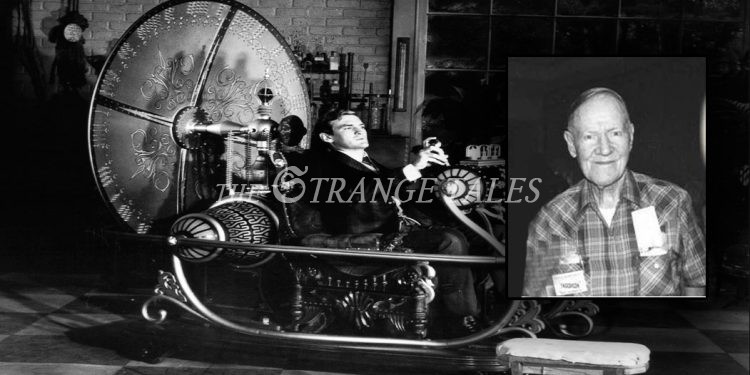If you haven’t heard of Al Bielak, he is widely regarded as one of the most fascinating characters ever documented in the history of mankind. He kept a journal of his experiences throughout the years, and he conducted dozens, if not hundreds, of interviews during the time to highlight his diverse perspectives.

Most notably, he discussed his experiences in the year 1943, as this was where his journey through time began. That’s true, he stated that he was involved in many time-traveling operations at the time, during which he encountered a fatal technical issue, leaving him trapped in the year 2137 for two years.
After surviving a terrible case of radiation poisoning that was fortunately cured in the year 2137, he returned with a stunning revelation: the future is not as bright as we hoped it would be, to say the least.
To illustrate his claim, he even anticipated future events before they occurred, demonstrating that he did, in fact, live in the future.
He spoke about the 1943 Montauk project, notably the USS Eldridge, which was the ship involved in the catastrophe.
Duncan Cameron and Preston Nichols, who exhibited his various experiences throughout the years for the world to witness, have validated the Mind Control program here.
VIDEO:
NOTE:
Time travel
Time travel is the concept of movement between certain points in time, analogous to movement between different points in space by an object or a person, typically with the use of a hypothetical device known as a time machine. Time travel is a widely recognized concept in philosophy and fiction, particularly science fiction. The idea of a time machine was popularized by H. G. Wells‘ 1895 novel The Time Machine.[1]
It is uncertain if time travel to the past is physically possible, and such travel, if at all feasible, may give rise to questions of causality. Forward time travel, outside the usual sense of the perception of time, is an extensively observed phenomenon and well-understood within the framework of special relativity and general relativity. However, making one body advance or delay more than a few milliseconds compared to another body is not feasible with current technology. As for backward time travel, it is possible to find solutions in general relativity that allow for it, such as a rotating black hole. Traveling to an arbitrary point in spacetime has very limited support in theoretical physics, and is usually connected only with quantum mechanics or wormholes.
History of the time travel concept

Statue of Rip Van Winkle in Irvington, New York
Some ancient myths depict a character skipping forward in time. In Hindu mythology, the Vishnu Purana mentions the story of King Raivata Kakudmi, who travels to heaven to meet the creator Brahma and is surprised to learn when he returns to Earth that many ages have passed.[2][3] The Buddhist Pāli Canon mentions the relativity of time. The Payasi Sutta tells of one of the Buddha‘s chief disciples, Kumara Kassapa, who explains to the skeptic Payasi that time in the Heavens passes differently than on Earth.[4] The Japanese tale of “Urashima Tarō“,[5] first described in the Manyoshu tells of a young fisherman named Urashima-no-ko (浦嶋子) who visits an undersea palace. After three days, he returns home to his village and finds himself 300 years in the future, where he has been forgotten, his house is in ruins, and his family has died.[6] In Jewish tradition, the 1st-century BC scholar Honi ha-M’agel is said to have fallen asleep and slept for seventy years. When waking up he returned home but found none of the people he knew, and no one believed his claims of who he was.[7]





